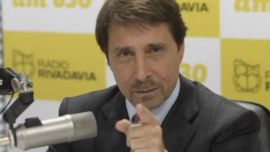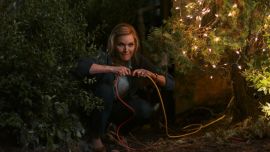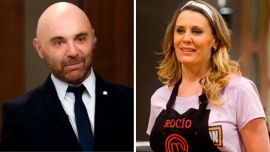Inextricably linked to the Buenos Aires Herald’s defence of human rights against the 1976-1983 military dictatorship although his fame might be, Robert Cox showed that he is far from being stuck in the past when addressing the University Women’s Club luncheon last Tuesday.
Taking his cue from the analysis of “synthetic power” by this newspaper’s Executive Director Agustino Fontevecchia at the April UWC luncheon, Cox warned of freedom being under threat now as then. The instruments might be invasive apps rather than green Ford Falcons and the objectives commercial rather than political (perhaps mercifully, in his opinion) but the totalitarianism is more “Orwellian” than ever.
The title of his talk ‘Why Independent Journalism Matters’ was thus more valid than ever since the spoonfed propaganda of the military dictatorship has been succeeded by the far vaster universe of social networks – “sound and fury, signifying nothing” was the Macbeth quote he deployed to give his verdict there. In this context he also recommended the W.B. Yeats poem ‘The Second Coming’ – without quoting any lines, he seemed to be hinting at “The best lack all conviction, while the worst are full of passionate intensity.”
While independent journalism thus matters more than ever, Cox inclined towards pessimism as to whether it is up to the challenge. Plenty of writing skills still out there but the investigative journalist is a dying breed with confinement to newsrooms (when not the even more isolated home office) no substitute for the street when it comes to contact with reality. And if war is too important to be left to the generals, perhaps journalism can be too important to be left to the journalists – he cited his late wife Maud (who died last December at the age of 92) as an invaluable and irreplaceable touchstone for his own work with her infallible instincts and all her family contacts.
But his UWC audience was never going to allow him to escape mention of his best (and also worst in other senses) years when he saved lives, some of whom are still alive almost half a century later for him to look up on his frequent returns to Argentina. Their curiosity largely centred on the 1976-1981 military president Jorge Videla – not altogether a fortunate choice because Cox could have given a far more trenchant portrait of evil had he been asked to speak about Admiral Emilio Massera, more in keeping with the intended title of his talk ;Angels and Demons.’ His audience was thus spared a fuller account of all the horrors of the dictatorship but then they were all digesting a delicious lunch at the time.
Cox´s view of Videla is more ambivalent. They were on speaking terms (even in the wake of the horrific Belgrano massacre of the Pallottine priests on the bicentenary of United States independence in 1976) and Videla even tried to convince him to remain in the country just before threats to his family obliged him to leave in late 1979. A shy man, Videla was always conciliatory until pinned down on people going missing but even then Cox had the impression of a frightened rather than wicked man.
Too many strings in a wide-ranging ad lib talk to tie together in these lines – only a privileged UWC audience had the full benefit.






















Comments